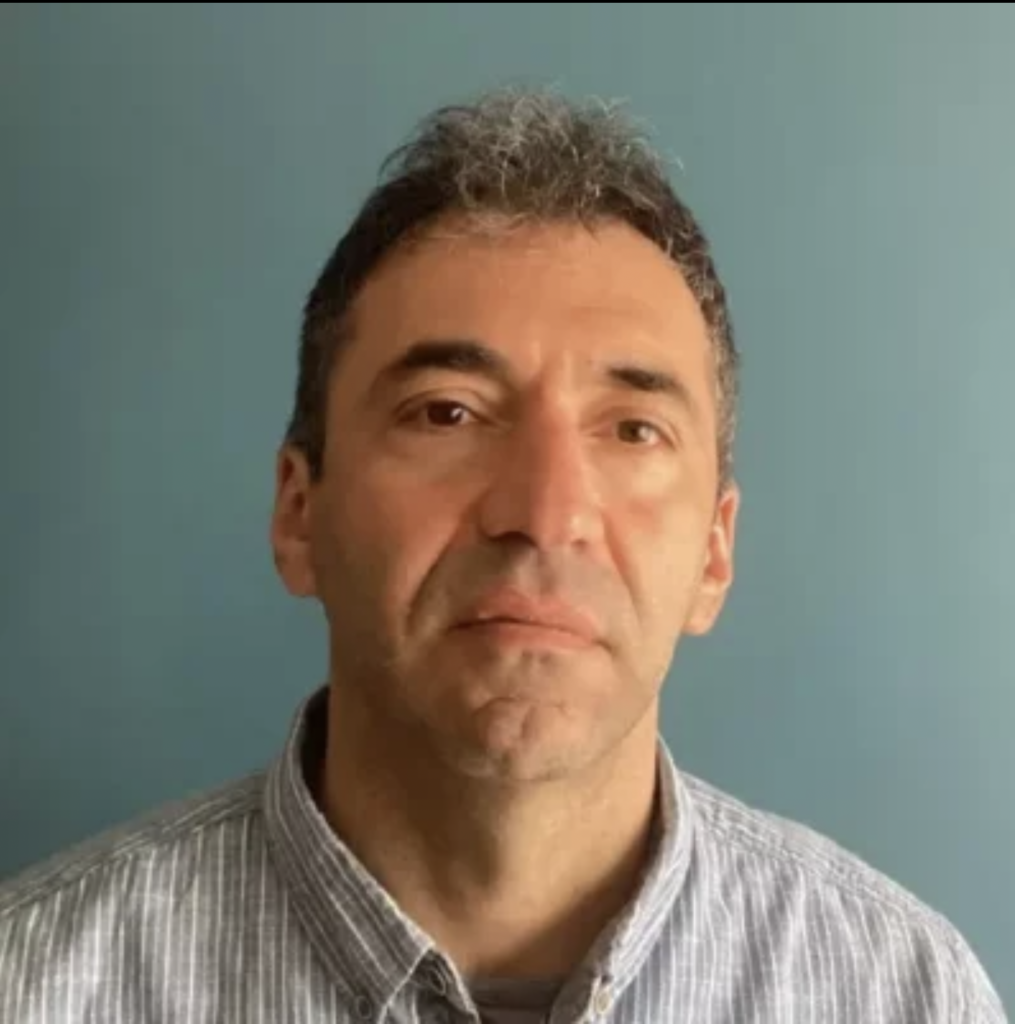Christodoulos Makris

Bio
Christodoulos Makris is a writer and poet who specializes in contemporary experimental, hybrid, and collaborative poetics. His work involves exploring language use, communication, identity, digital technologies, and their impact on social and political structures, as well as on the reading and writing of poetry. Makris’s writing is closely intertwined with his editorial and curatorial activities, and he is always seeking to challenge and explore new literary practices. Born in Nicosia in 1971, he lived and worked in Manchester and London before settling in Dublin in 2001. He has received many honors and awards for his work, including being selected as one of Poetry Ireland’s ‘Rising Generation’ poets in 2016 and serving as Digital Poet in Residence at the 2017 Stanza International Poetry Festival. In addition, he has received project commissions from the Irish Museum of Modern Art (IMMA) and was appointed Writer-in-Residence at National University of Ireland Maynooth in 2018-19. Makris has also received several awards from the Arts Council of Ireland and Fingal County Council and was awarded one of the inaugural Platform 31 bursaries in 2021. He is currently the holder of the inaugural Joseph M. Hassett Creativity Bursary (Poetry) 2021-22 at University College Dublin (UCD).
Questions
1. Your poetry has been described as experimental and innovative. What poetic techniques can you use to achieve this effect?
2. What is the role of language and sound in your poetry?
3. How do you approach the use of form and structure in your poems?
4. Can you tell us about any recurring motifs or symbols in your work?
5. Your work often engages with political and social issues. Can you discuss how you address these topics in your poetry?
6. Can you discuss the influence of your background and experiences on your poetry?
7. Many of your poems contain striking and vivid imagery. Can you tell us about your process for creating these images?
8. Can you discuss any particular poems where you feel you successfully captured a specific emotion or feeling?
9. Your poems often incorporate multiple languages. Can you tell us about how you use language and translation in your work?
10. Can you discuss your experiences working collaboratively with other artists or writers?
11. How do you approach the challenge of translating your poetry into other languages?
12. Your work has been published in a variety of literary journals and anthologies. Can you discuss how you select and submit your work to these publications?
13. Can you tell us about any specific poetry readings or performances that have been particularly memorable or meaningful to you?